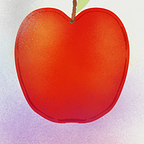World Cup — is it about teams or individuals?
The answer is somewhere in between, but more to one side
The World Cup is nearly upon us. It’s the season of wallcharts, sticker collections, prediction brackets and two classic questions:
- Which team will win this time?
- Which team was the greatest ever?
As we start to answer the second question, the discussion invariably drifts to superstars and teams immortalized in World Cup folklore.
This raises the question: Is the World Cup about teams or individuals?
Argument A: It’s about teams
Football is a team game. The best teams are more than the sum of individuals. We’ve seen many examples where a less talented that plays well together has beaten a team packed with superstars who play with relatively less cohesion. In the 4 World Cups this century, defending champions have exited in the group stage thrice. Despite being more talented, they have lost to new and unheralded teams.
When selecting teams, conventional wisdom is to select the best for each position. There are two variants to this.
- Building a team around a player
- Building a team based on best players, sacrificing positional balance.
In theory, these tactics should maximize the Return on Investment. In practice not so. Refer the Brazilian sides overflowing with forwards, the Argentinian sides of 1990 and 2014, that were heavily reliant on one player, or the incredibly talented Dutch sides which often under-perform due to lack of team cohesion. The irony could not be more stark for the Dutch given that it was their 1974 vintage which gave the world, the concept of Total Football.
The best winners and performers played as a team. The German sides, aptly named the Nationalmannschaft, are known for their mechanical teamwork. The incredible Spanish European Championships and World Cup run between 2008 and 2012 was another testimony to visible, deliberate and co-ordinated team work.
Argument B: It’s about individuals
Football is a team sport so logically, good teamwork will equate to triumph. The counter argument however is also equally strong.
Why? Each World Cup is like an individual photograph where a player or team emerges as the standout. Teams create generic memories. The winning team will play 7 games (630 minutes). Players create specific memories. The best player, will create a smaller, sharper imprint. Six goals usually give Golden Boot. A non-golden boot player of the tournament would usually have 4 goals across 7 games. About a 5–10 minute reel to remember.
People have finite memories. It’s easier to remember individual performance compared to teams. This is why Maradona is synonymous with 1986, Pele with Brazil’s triumphs in the 60s/70s, Ronaldo with 2002 etc. These standout players encapsulated their teams’ winning performances.
A beauty of the World Cup is that the best players may not be from the winning team.
Johann Cruyff remains the biggest example of a player who despite losing the final, remains synonymous with 1974 World Cup, despite the legendary Beckenbauer being the winning captain that year. Similarly, for all of James Rodriguez’ exploits and Klose’s record, Messi remained the standout player in 2014. Baggio won hearts in 1994 just as much as Ronaldo stood out in 1998 despite not top scoring.
The World Cup is played by teams, won by teams, but defined by individuals. Individual legends emerge in each World Cup, and retain the most lasting associations. Rossi (Italy), Pele (Brazil), Maradona (Argentina), Hurst (England ) etc., are all remembered interchangeably with their respective countries when we recite World Cup winners.
Verdict: Actually, it’s about heroes!
The article opened with a question — is the World Cup about teams or individuals? The answer lies in the very scenario that gave rise to the vexing question — the 1974 World Cup, remembered more for Johann Cruyff than anything else. The Dutch side pioneered Total Football, a Utopian blend of individual expression within a team setting.
Long before club football reached its current height, the World Cup remained the premier competition to showcase individual skill — in particular, individual skill that carried a team to the pinnacle. The greatest exponent of the game — Pele, being the case in point.
World Cups are about heroes — individuals that embody skill, individuals that define football and ultimately, individuals that capture hearts.
Teams are the supporting cast, that we wish come through for our hero(es) on route to the pinnacle.
